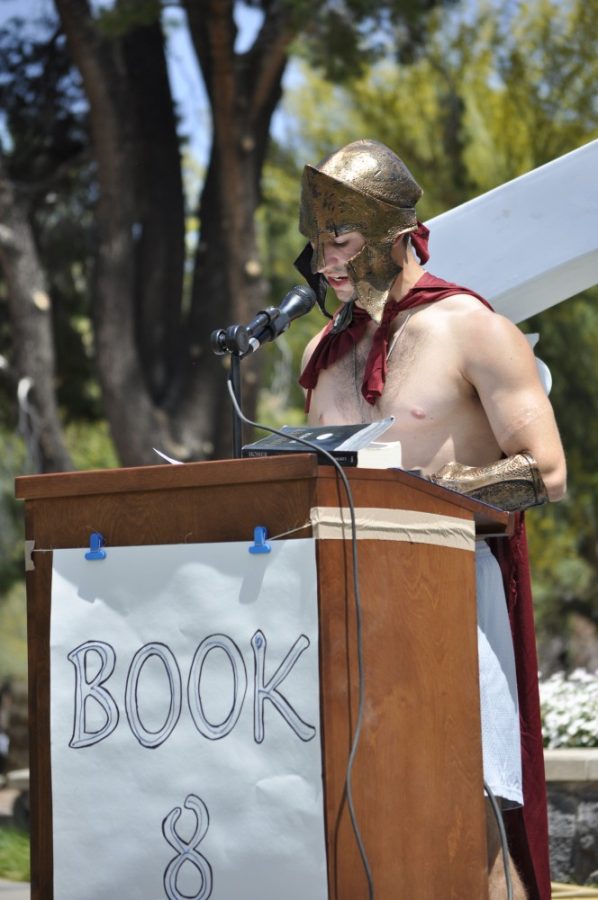It’s not every day that students sacrifice a bull in front of Old Main, even if the offering is just papier-mâché.
Thursday’s second annual Homerathon was not just about Homer. During the 24-hour event, hosted by the University of Arizona Classics Club, attendees read the entirety of “The Odyssey” aloud while also engaging in Greek dancing, joke-telling and puns, and fortune-telling with dice.
“This is the way Homer is meant to be read,” said Mike Lippman, a classics professor and supervisor of the event.
Lippman said the atmosphere of the Homerathon is like a festival. He added that he was excited to see the way this year’s event reached out to the entire community. In addition to the UA students who attended, local high school students and city residents turned out for the festival.
In fact, Kellner Brown, a former student who helped plan last year’s Homerathon, said the first event was so successful that it gained national attention from USA Today. So this year, the Classics Club received thousands of dollars of funding from the UA and donations from other sponsors to do it again, Kellner said.
Some of the donations included free food from Eegee’s and Paradise Bakery.
Mike Baker, a physiology senior minoring in classics, is the president of the Classics Club. He said the Homerathon not only celebrates “The Odyssey,” but shows the community how the classics in general are relevant far beyond the world of academia.
Baker said when last year’s Homerathon featured “The Iliad,” “we used it as a political discussion of how you can have a war, but still treat each other with respect.” He said the story of “The Odyssey” is about the journey home, which relates a lot to soldiers who are returning from Iraq and Afghanistan.
There’s a transition from warfare to home, and from youth to manhood, in both “The Odyssey” and real-life warfare situations, Baker said.
Attendees said they enjoyed the Homerathon for many different reasons, from its food and frivolity to the opportunity to nerd out about classics and their greater relevance to serious political issues.
But one experience seemed universal to anyone who stopped by. As Lippman concluded, the Homerathon is the perfect way to, “Get out in the sun and read (“The Odyssey”) out loud, with food and with friends, and without the pressure of grades.”









